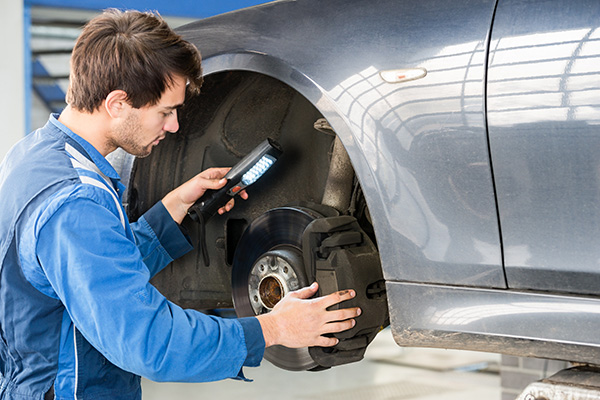
Your vehicle's brakes are essential for your safety on the road. Recognizing the warning signs of brake problems can help you address issues before they escalate into major safety concerns. We'll list seven common warning signs that indicate potential brake problems, allowing you to take proactive measures to ensure the reliability of your vehicle's braking system.
1. Squealing or Grinding Noises
One of the most noticeable signs of brake trouble is unusual noises when applying the brakes. Squealing or grinding sounds can indicate worn brake pads or damaged brake rotors. Ignoring these noises can further damage your braking system and compromise your ability to stop safely.
2. Soft or Spongy Brake Pedal
A soft or spongy brake pedal can indicate air in the brake lines or a leak in the brake fluid system. When you press the brake pedal, it should feel firm and responsive. If the pedal feels mushy or sinks to the floor when you apply pressure, it's important to have your brakes inspected immediately to prevent brake failure.
3. Vibrations or Pulsations
If you feel vibrations or pulsations through the brake pedal or steering wheel when braking, it could be a sign of warped brake rotors. Warped rotors can result from overheating or improper installation and can compromise the effectiveness of your braking system. Addressing this issue promptly can prevent further damage and ensure smooth braking performance.
4. Dashboard Warning Lights
Modern vehicles are equipped with dashboard warning lights that illuminate when there's a problem with the braking system. Suppose you see the ABS (Anti-lock Braking System) light, brake warning light, or traction control light illuminated on your dashboard. In that case, a qualified mechanic must inspect your brakes to identify and address any underlying issues.
5. Longer Stopping Distances
If your vehicle takes longer to come to a stop than usual, it's a clear indication of brake problems. Extended stopping distances can compromise your safety on the road, whether it's due to worn brake pads, low brake fluid, or other issues. Don't ignore this warning sign – have your brakes inspected and serviced promptly to ensure optimal braking performance.
6. Burning Smell When Braking
If you detect a burning odor when applying your brakes, it could signal overheated brake pads or a stuck brake caliper. This smell may indicate excessive friction and potential damage to the braking system. Prompt inspection and repair are necessary to prevent further complications and ensure safe driving conditions.
7. Brake Fluid Leaks and Loss of Brake Pressure
Brake fluid leaks can lead to a loss of brake pressure and compromised braking performance. Common causes of leaks include deteriorated brake lines, worn seals, or damaged brake components. Addressing fluid leaks promptly is crucial to maintaining optimal brake function and preventing potential safety hazards on the road.
Don't wait until it's too late! Schedule your brake inspection today at KAMS Auto Service Center and ensure your safety on the road.